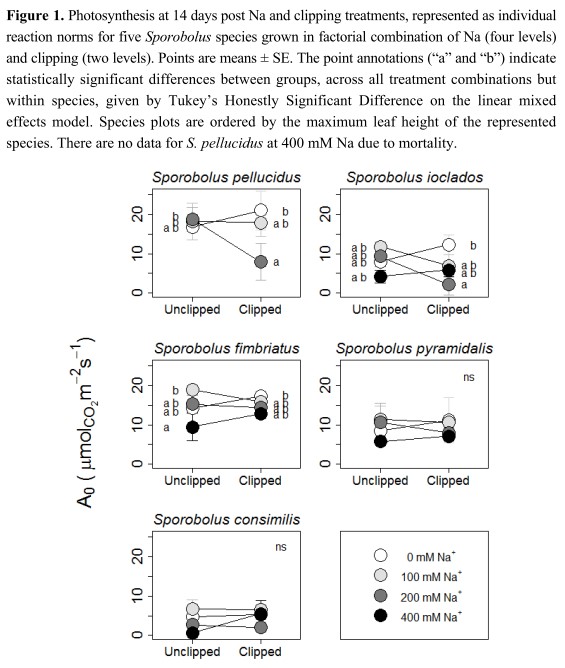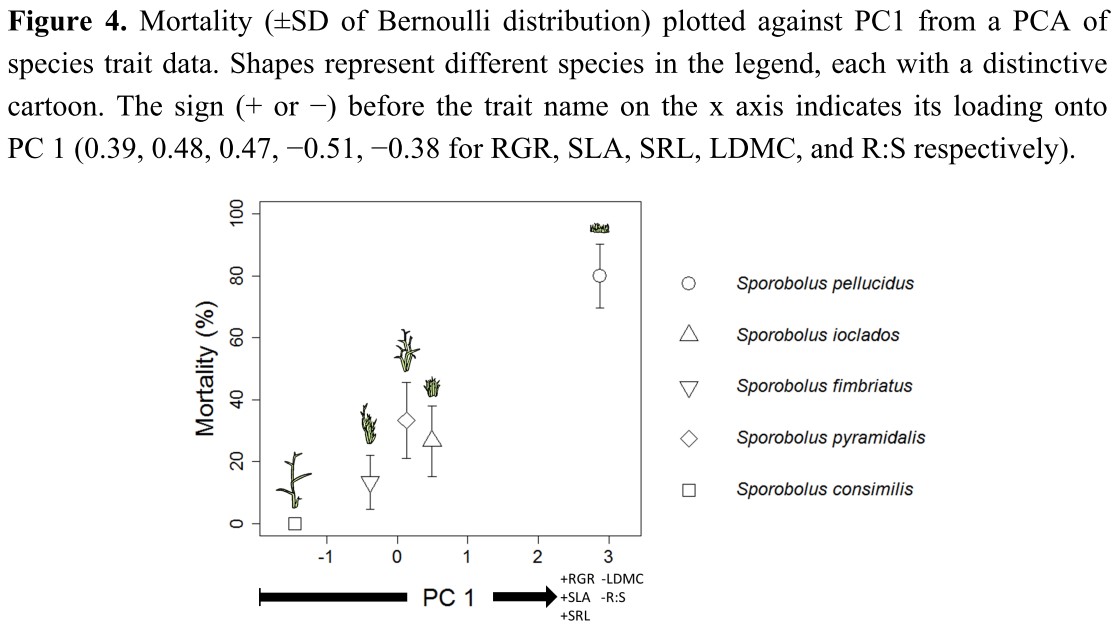Herbivory and Edaphic Stress Gradients in the Serengeti – Dan Griffith
Adaptations are traits resulting from natural selection that provide a benefit to an organism in a particular, and often stressful, environment. Organisms have a limited amount of energy and resources to invest in any one adaptive characteristic. Therefore, significant adaptations come with costs in the form of reduced tolerance to other conditions or stressors. For many plants, a fundamental adaptation is the ability to tolerate loss of tissue to herbivores (i.e. defoliation). Consequently, one hypothesis is that plants strongly adapted to tolerate continual defoliation by animals should lack tolerance to extreme or stressful environmental conditions.
This research program investigates the hypothesis that adaptations to one stress are associated with evolutionary tradeoffs to others stressors by looking at the special case of soil salinity stress (i.e. sodium) and herbivory in Serengeti grasses. High salinity is ecologically intriguing for a number of reasons, the most important being that grazing animals preferentially forage on grasses growing in saline soils in order to meet their sodium requirements, whereas too much sodium can be toxic to plants. This creates the evolutionary conundrum that plants must be successful in tolerating both herbivory and high soil salinity. The evolution and ecology of grasses living with these dual stressors was investigated in a greenhouse experiment.
We expected that species that experience high grazing and sodium in the field would have tolerance mechanisms allowing them to cope with both stress factors simultaneously. Instead, in a recent lab study comparing five Sporobolus species (S. consimilis, S. pyrimidalis, S. fimbriatus, S. ioclados, and S. pellucidus), we found that those species from high sodium and heavily grazed areas actually fared worse than other species in terms of their physiological response (Figure 1) and survivorship (Figure 4). Because species mortality in the experiment was associated with a “high-turnover” plant strategy (Figure 4) we speculated that species must cope with duel sodium-herbivory stress through some other mechanism such as increased fecundity, range of germination conditions, or dispersal ability.
Please feel free to contact me with ideas, suggestion, questions, and comments.
Published papers in the area of research:
Griffith, D.M., and T.M. Anderson. 2013. Responses of African grasses in the genus Sporobolus to defoliation and sodium stress: tradeoffs, cross-tolerance, or independent responses? Plants 2:712-725. Link to paper
Presentations in the area of research:
- Dan Griffith presented a simple poster at the Sigma Xi conference in Raleigh, NC November 2012.
- Dan Griffith presented a poster on community structure and trait evolution in grasses along salinity gradients at WFU Grad research day (2014)
- Abstract accepted for ESA 2014 oral talk, see you there!



